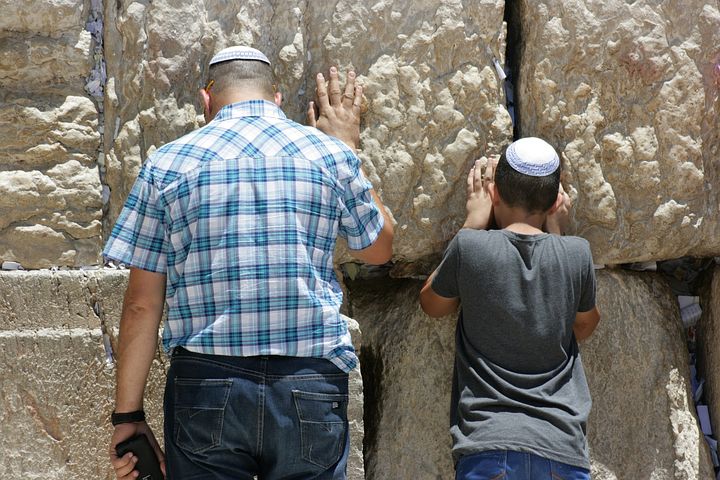One of the divides between the major faiths is ignorance, which then feeds prejudice. These blogs aim to help us pray and appreciate bow members fo other faiths pray.
The theme this week is ‘Foundations’ – those prayers which as members for faith communities we take for granted within our own tradition but no little about from other traditions.
May you find what is here a blessing.

Sunday Christian – Western
- Our Father, who art in heaven,
- hallowed be thy name;
- Thy kingdom come,
- thy will be done in earth as it is in heaven.
- Give us this day our daily bread;
- Forgive us our trespasses,
- as we forgive those who trespass against us
- and lead us not into temptation,
- but deliver us from evil.
- (For thine is the kingdom, the power and the glory,
- for ever and ever. Amen)
The Lord’s Prayer, as it is called, was taught by Jesus to his disciples. You can find it in Matthew 6.9-13. In the sixth and seventh lines, the old in Matthew is ‘debts’ no ‘trespasses’. The last two lines in brackets are not included in the oldest manuscripts, and may have been taken from 1 Chronicles 29.11.
There is a shorter, and argusably more original version in Luke 11.2-4.
Monday Hindu
- “Lead us from the unreal to the real.
- Lead us from darkness to light.
- Lead us from death to immortality”.”
From the Brihadaranyaka Upanishad 1.3.28
Tuesday Alcoholics Anonymous
Our description of the addict, the chapter to the agnostic, and our personal adventures before and after make clear three pertinent ideas:
- (a) that we were addicts and could not manage our own lives;
- (b) that probably no human power could have relieved our addiction;
- (c) that God could and would if he were sought.
(Alcoholics Anonymous, p.60)
I have replaced the word ‘alcoholic’ with the word ‘addict’, because over the last eighty years the twelve step programme of Alcoholics Anonymous has been adopted by countless groups of people suffering from a wide variety of addictions, from substance abuse like cocaine to mental processes like gambling.
Wednesday Buddhist
The four Noble Truths were, according to tradition, spelled out in Gautama Buddha’s first sermon after receiving enlightenment. There are countless ways of interpreting them.
- The truth of suffering
- The truth of desire – desire and ignorance are at the root of suffering.
- The truth of the end of suffering – either here or hereafter
- The truth of the Noble Eightfold Path, namely
- Right understanding
- Right thought
- Right Speech
- Right Action
- Right Livelihood
- Right Effort
- Right Mindfulness
- Right Concentration
A good start is to sit upright for a certain length of time and concentrate on breathing deeply.
Thursday Christian, Eastern Orthodox
Lord Jesus Christ, Son of God, have mercy upon me, a sinner.
The Jesus prayer has been a cornerstone of Orthodox spirituality for at least six hundred years. It is used as a means of praying continually, so that it starts to run automatically at the back of one’s mind, keeping one focussed on God through Jesus. In recent years it has become popular among Western Christians as a form of meditation. It comes from the prayer of the blind beggar Bartimaeus in Mark 10.47, and the prayer of the tax collector in Jesus’ parable in Luke 18.13.
Friday Muslim
- In the name of Allah, the Beneficent, the Merciful.
- Praise be to Allah, Lord of the Worlds,
- The Beneficent, the Merciful.
- Master of the Day of Judgment,
- Thee alone we worship; Thee alone we ask for help.
- Show us the straight path,
- The path of those whom Thou hast favoured;
- Not the path of those who earn Thine anger nor of those who go astray.
Interpretation in English of Surah al-Fatihah (The Opening, the first Sarah or chapter of the Qu’ran) by Pickthall, 1930. (
Saturday. Jewish
Hear, O Israel: The Lord is our God, the Lord alone. You shall love the Lord your God with all your heart, and with all your soul, and with all your might.
Keep these words that I am commanding you today in your heart. Recite them to your children and talk about them when you are at home and when you are away, when you lie down and when you rise. Bind them as a sign on your hand, fix them as an emblem on your forehead, and write them on the doorposts of your house and on your gates.
(Deuteronomy 6.4-9)
The Shema – so-called after the Hebrew for the first word – is the foundation of the Jewish faith. It is the centrepiece of morning and evening prayers. Observant Jews write it in a mezuzah and fix it to the entrance of their house. It was quoted by Jesus when he spoke of the greatest commandment of the Law. (Mark 12.28-34).

